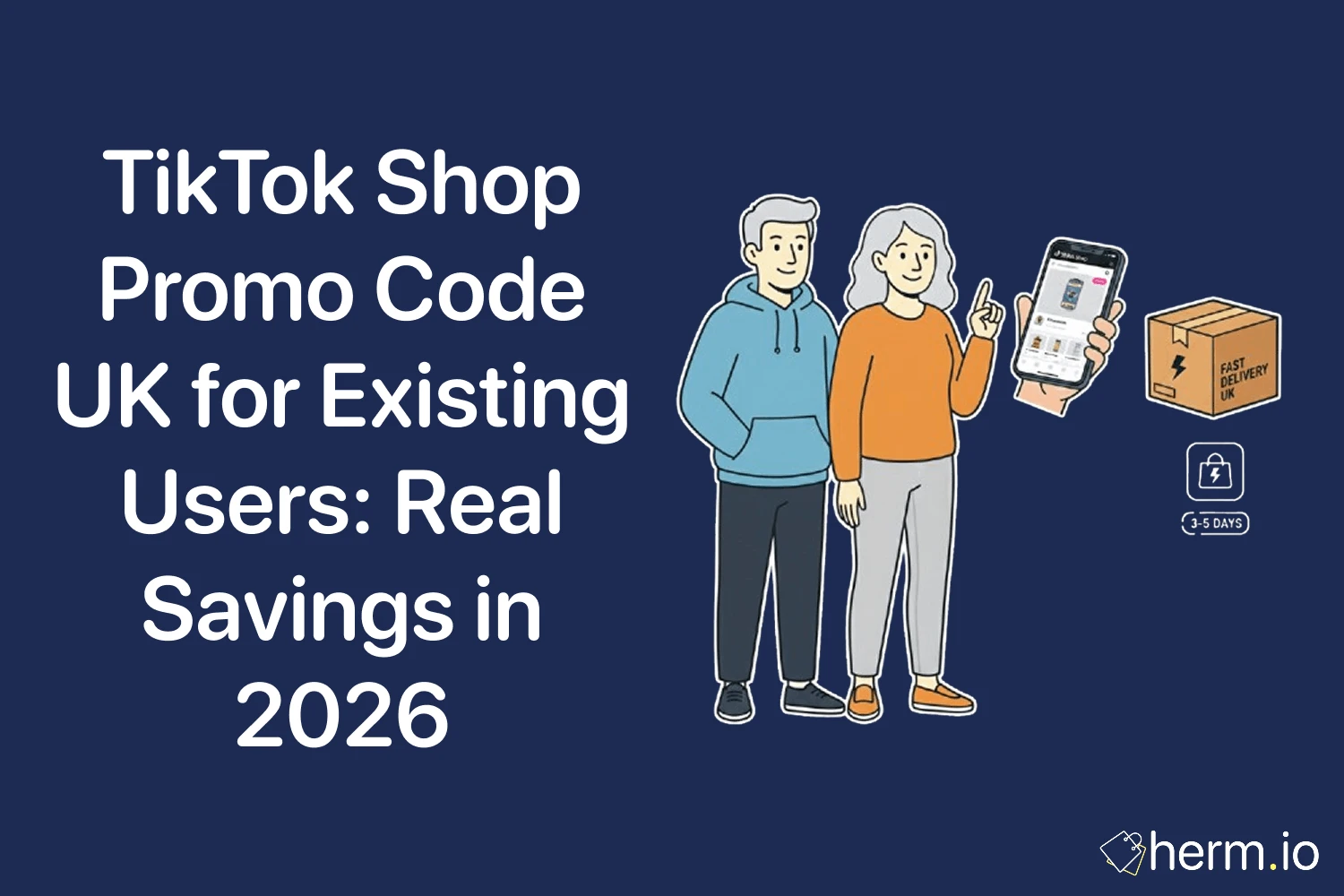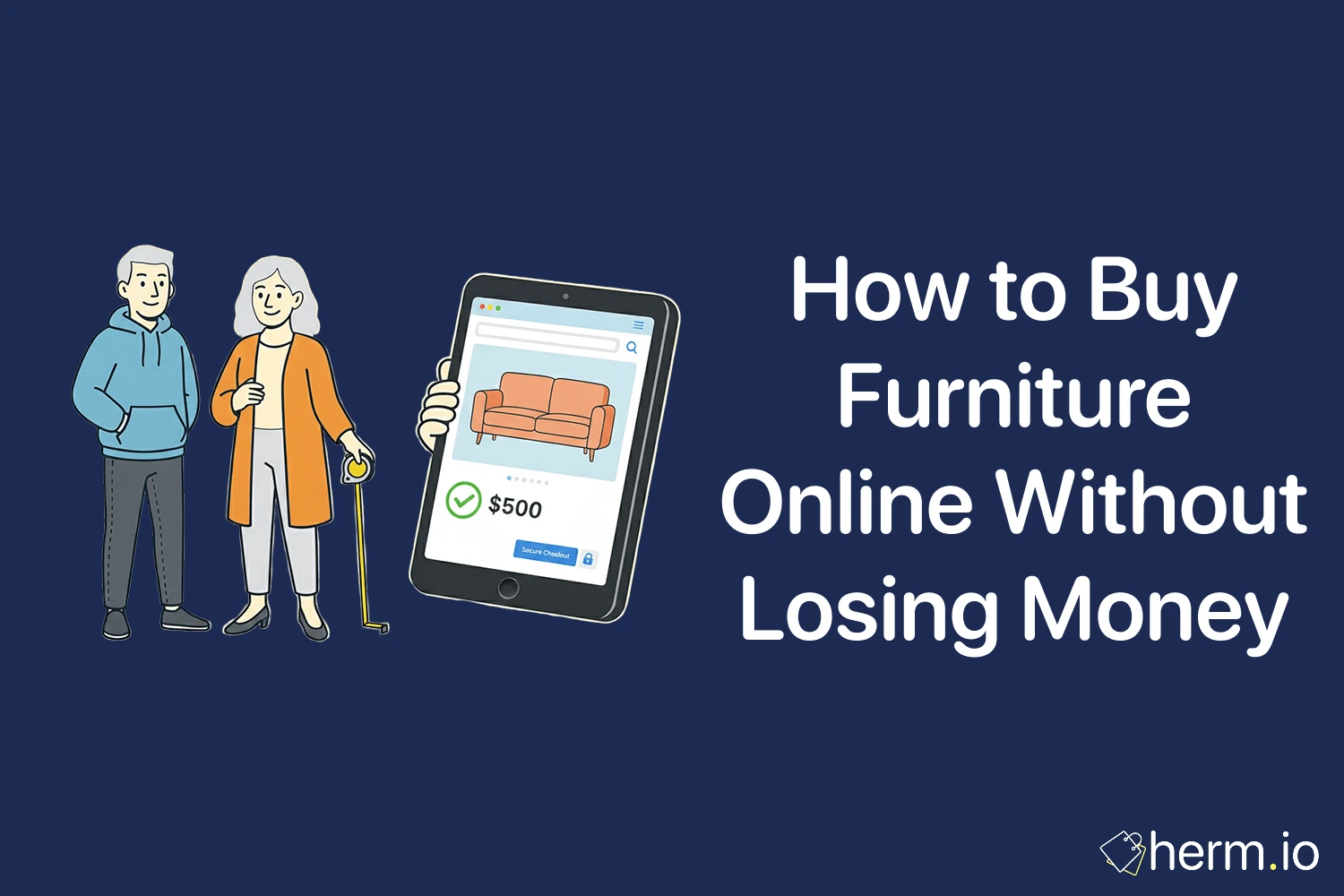
Last week, I was about to hit that tempting "Complete Purchase" button on a new pair of trainers when something made me pause. On a hunch, I opened a new tab and searched for a discount code. Two minutes later, I was checking out with the same trainers—but £18 cheaper. Those few moments of searching saved me enough for a nice lunch out!
If you've ever kicked yourself after discovering a friend paid less for the exact same item because they knew where to find a coupon code, you're not alone. Many of us rush through online checkouts without realizing how much money we're leaving on the table. The good news? Finding these money-saving gems doesn't require extraordinary effort—just knowing where to look.
This guide will walk you through the smartest ways to find and use coupon codes, turning you from an occasional deal-finder into a savvy savings expert who never pays full price unnecessarily.
Quick Wins: Start Saving Today
- Install a browser extension like Honey or Rakuten before your next shopping session—setup takes just 2 minutes
- Sign up for your favorite retailer's newsletter using a dedicated "shopping email" to score immediate welcome discounts
- Check social media accounts of brands you're about to purchase from—many post limited-time codes in Stories or pinned posts
- Always check for coupon stacking opportunities (combining a discount code with an ongoing sale)
Why Hunting for Coupons Is Worth Your Time
Remember when clipping coupons meant scissors and newspaper inserts? Today's digital coupon codes work like secret passwords that unlock instant savings at checkout. These alphanumeric codes might look random—SAVE20 or SUMMER10—but they translate directly into money back in your pocket.
The savings add up faster than you might think. British shoppers who consistently use coupon codes save an average of £300-400 annually—enough for a weekend getaway or several months of phone bills. Think of coupon hunting like finding money on the pavement; it takes minimal effort but delivers immediate rewards.
Retailers actually want you to find these discounts (within reason). Offering codes helps them convert browsing shoppers into buyers and builds customer loyalty. For you, it means never having to feel that twinge of regret when you discover you could have paid less.
The Best Coupon Websites: Where the Deals Live
Imagine having a friend who keeps track of every available discount for thousands of shops. That's essentially what coupon aggregator websites do. These sites gather active coupon codes in one searchable place, saving you the hassle of hunting them down individually.
RetailMeNot: Your Reliable Deal Companion
What sets RetailMeNot apart is its user rating system. Shoppers verify whether codes actually work, so you won't waste time trying expired offers. I've had particular success finding codes for fashion retailers here, with most of my ASOS purchases discounted thanks to codes found on this site.
Slickdeals: Where Deal Hunters Share Their Finds
Think of Slickdeals as the Reddit of savings—it's powered by an enthusiastic community of bargain hunters. Their electronics section is especially strong; I managed to save nearly £75 on my laptop purchase after finding a code combination suggested by a forum member.
Coupons.com: Everyday Essentials Savior
Don't overlook this site when shopping for groceries and household items. Unlike other coupon sites that focus on fashion and tech, Coupons.com excels at helping you trim your weekly shopping bill. Their digital grocery coupons often translate to substantial savings on brands like Tesco and Sainsbury's.
DealNews: Big-Ticket Item Specialist
When making larger purchases, DealNews should be your first stop. Their team focuses on evaluating the actual value of deals rather than just gathering codes. Before buying my washing machine, their analysis helped me determine whether waiting for a seasonal sale or using an immediate coupon code would save me more.
Let Browser Extensions Do the Work For You
If searching for coupon codes feels like too much effort, browser extensions are your technological shortcut. These clever tools sit quietly in your browser until you reach a checkout page, then spring into action by automatically testing available coupon codes.
Setting up these extensions takes less time than brewing a cup of tea:
- Visit the extension's website or your browser's extension store
- Click "Add to Browser"
- Create a free account (usually just email and password)
- Shop as normal
When you reach checkout, the extension automatically searches for and tests available codes, applying the one that saves you the most money.
The most reliable options for UK shoppers include:
Honey: The All-Rounder
Beyond just finding coupon codes, Honey tracks price history so you'll know if that "sale" price is actually a good deal. It's saved me from impulse purchases more than once by showing me that an item regularly drops lower in price during seasonal sales.
Rakuten: Double-Dipping with Cashback
What makes Rakuten special is that it combines coupon codes with cashback opportunities. On a recent £120 furniture purchase, I not only got 15% off with a code but also earned £9 in cashback—savings that arrived in my PayPal account a month later.
Capital One Shopping: The Price Comparison Champion
Even with a coupon applied, you might not be getting the best deal. Capital One Shopping checks if other retailers offer the same product for less, potentially saving you more than any single coupon code could.
Sign Up Strategically: Email and SMS Gold Mines
That popup asking for your email address? It's worth considering before you click away. Many retailers offer immediate discounts of 10-20% just for subscribing to their newsletter.
Last month, I needed new bed linens from John Lewis. Before browsing, I signed up for their newsletter and received a 15% off welcome code in my inbox within minutes—saving £12 on my purchase. The key is managing these subscriptions so they don't overwhelm your primary inbox.
Create a dedicated "shopping email" that you check only when planning purchases. Then set up a simple organization system:
- Use Gmail filters to sort retail emails into specific folders
- Review these folders before making related purchases
- Set a quarterly reminder to unsubscribe from lists you no longer use
Some retailers like Boots and M&S also offer SMS-exclusive codes that aren't available elsewhere, often with more generous discounts than their email counterparts.
Social Media & Forums: Where Secret Deals Hide
Retailers frequently reward their social media followers with exclusive codes that never appear on their websites. Following your favorite brands on Instagram or Twitter isn't just about product updates—it's about access to limited-time offers.
Instagram Stories are particularly fertile ground for coupon codes. These 24-hour promotions often feature better discounts than permanent ones, as brands use them to generate quick sales bumps. Check the highlights section of brand profiles, where many save their promotional codes for longer access.
Beyond official brand accounts, deal-hunting communities share finds that you might otherwise miss:
- Facebook groups like "UK Bargain Hunters" often post real-time deals and voucher codes
- Reddit's r/UKDeals features user-tested coupon codes with honest reviews
- Twitter searches for "[brand name] code" often reveal recent customer experiences with various discounts
A fellow shopper in a Facebook group tipped me off to a hidden IKEA promotion that wasn't advertised on their main pages—saving me £35 on a bookshelf that would have otherwise been full price.
Reading the Fine Print: Avoiding Disappointment
Nothing deflates the satisfaction of finding a great coupon code like seeing "This code cannot be applied" at checkout. Understanding common exclusions beforehand saves both time and disappointment.
The most frequent limitations include:
- Brand exclusions within department stores (luxury brands like Nike or Apple products are often exempt)
- "Cannot be combined with other offers" restrictions that prevent stacking discounts
- Minimum spend thresholds (spend £50 to save £10)
- New customer exclusions (for returning customers)
Before hunting for codes for your ASOS haul, for example, check whether the items in your basket are from ASOS's own label or from third-party brands, as many sitewide discounts exclude the latter.
When I spotted a great 25% off code for Debenhams, reading the terms revealed it couldn't be applied to electrical items. Rather than abandoning my small appliance purchase, I found an alternative 15% code specifically for electrical goods—less impressive but still valuable savings.
Never Let a Code Expire: Tracking Systems That Work
Just like milk in your fridge, coupon codes have expiration dates—and discovering a juicy discount has expired is genuinely disappointing. Creating a simple tracking system prevents these missed opportunities.
I keep a basic spreadsheet with three columns:
- Retailer name
- Code details and discount amount
- Expiration date (sorted to show soonest expiring codes first)
Before any purchase, I check this list first. This system recently reminded me to use a 20% off Boots voucher just two days before it expired, saving £12 on skincare products I needed anyway.
For the tech-savvy, apps like Trello or even a simple notes app with reminder functions can serve the same purpose. The key is having a system that alerts you before valuable codes disappear.
Bringing It All Together: Your Coupon Strategy
Finding and using coupon codes doesn't require becoming an extreme couponer with a dedicated stockroom. Instead, think of it as developing a savvy shopping habit that pays dividends every time you shop online.
A balanced approach might look like:
- Installing one reliable browser extension for automatic code checking
- Creating a dedicated email for retail subscriptions
- Following your top five most-frequented retailers on social media
- Checking a coupon aggregator site before major purchases
These simple steps take minimal time but ensure you're not leaving money on the table with every online purchase. Last year, this strategy saved me roughly £280 across various purchases—money that funded a weekend trip rather than padding retailers' profit margins.
Remember that the best time to look for coupon codes isn't just during obvious sale periods like Black Friday. Many retailers offer their best targeted discounts during quieter shopping seasons when they're eager to boost sales numbers.
What coupon code will you hunt down for your next purchase?
Frequently Asked Questions
Do coupon codes work on retailer mobile apps, or only on websites?
Most coupon codes work on both platforms, but occasionally you'll encounter website-exclusive codes. If a code fails on an app, try completing your purchase on the retailer's mobile website instead. I've found ASOS codes, in particular, sometimes work better on their website than in their app.
Can I use multiple coupon codes on a single purchase?
It depends on the retailer. Some allow "stacking" different types of codes (like one for free delivery and another for a percentage discount), while others limit you to one code per transaction. Marks & Spencer often allows stacking a delivery code with a discount code, while ASOS typically restricts you to one code only.
What should I do if I discover a great coupon after making a purchase?
Contact customer service immediately—many retailers will honor recently discovered codes if your purchase is within 24-48 hours. I successfully got a £15 adjustment from John Lewis when I found a better code the day after ordering furniture. Just be polite and ask if they can apply the discount retroactively.
Are coupon browser extensions safe to use with my personal information?
Stick with established extensions from reputable companies like Honey (owned by PayPal) and Rakuten. Read their privacy policies before installing—most collect shopping data but not sensitive payment information. If privacy is a major concern, consider using them only on a dedicated shopping browser separate from your everyday browsing.

Camille Durand
I'm a marketing analytics expert and data scientist with a background in civil engineering. I specialize in helping businesses make data-driven decisions through statistical insights and mathematical modeling. I'm known for my minimalist approach and passion for clean, actionable analytics.

.png)

.webp)






.png)

.png)
.png)
.png)